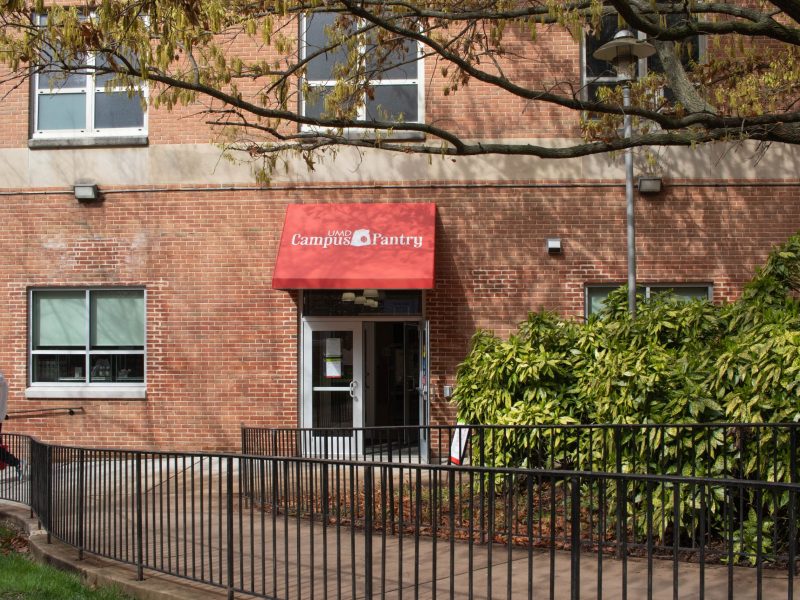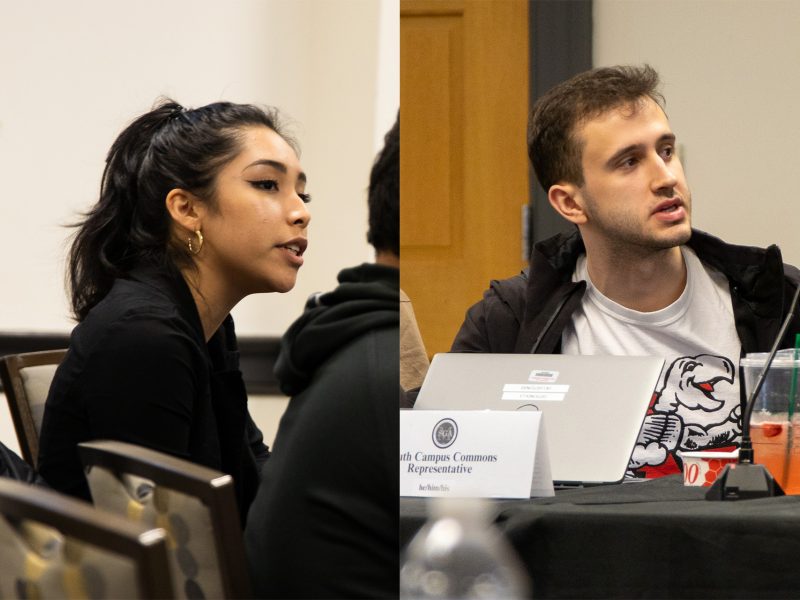The University of Maryland held a town hall Wednesday in Stamp Student Union to discuss with faculty and students how this university should change its restricted research policy.
About 70 students and faculty attended the town hall in the Colony Ballroom to share suggestions and concerns about a new policy for restricted research — which occurs when constraints are placed on research before publication — and regulation of its use.
This university’s current policy does not allow students and faculty to conduct restricted research, except when the University System of Maryland chancellor grants a student the ability to do so, which has occurred before, said Keith Marzullo, dean of the information studies college.
Provost Mary Ann Rankin charged this university’s Research Council in August with examining the policy and providing her with future recommendations. The council’s Restricted Research Subcommittee has 16 members, including two students, from a variety of university departments, and the group has met three times this year.
However, “[the] policy is basically a non-policy,” Marzullo said, and it does not provide clear guidance for when and how restricted research is allowed.
The committee is hoping to propose changes to the policy that make both confidential and commercial research more accessible to university faculty and students. It has looked toward other universities, such as the University of Michigan and Purdue University, for examples of how to model this university’s policy.
While these schools don’t conduct a large amount of similar research, it is generally allowed after being reviewed by a committee, Marzullo said.
The town hall’s purpose was “to make the process more definitive — basically saying, ‘Here’s the conditions you should think about [when] doing restricted research,'” Marzullo said.
Issues surrounding the safety of restricted research surfaced at the event, with biochemistry professor Jason Kahn noting that this type of research may “skew to be more dangerous.” For example, a company may own a material that students would be working with for their research. If there is no published work on the safety of those materials, it’s hard to assess how dangerous or risky it would be to use it for research, he said.
Marzullo said while the committee had not considered safety risks in its discussions, it would plan to have a panel thoroughly review any potential restricted research and would reject a potentially dangerous proposal.
The Department of Environmental Safety, Sustainability and Risk, which deals with research safety on campus, may advise the future panel on any safety issues that could arise during proposed restricted research, said Maureen Kotlas, the department’s executive director.
Several professors, such as mechanical engineering professor Ashwani Gupta, were strongly in favor of changing the restricted research policy, noting that they’ve missed out on millions of dollars of grant money. Gupta said he lost out on a $1 million grant because their sponsors wanted to review and approve the publication, which this university does not allow.
“There’s a lot of interesting research that can fall into this category, and faculty and students would like the opportunity to decide whether they want to work on it,” said Robert Briber, associate dean for research at the engineering school. “There are many projects that we haven’t had recently that we would liked to have worked on but were prevented because of potential publication restrictions.”
The Restricted Research Subcommittee will present its findings and recommendations to the University Senate and the provost by next January, and these groups will take the suggestions into consideration before drafting a new policy.


